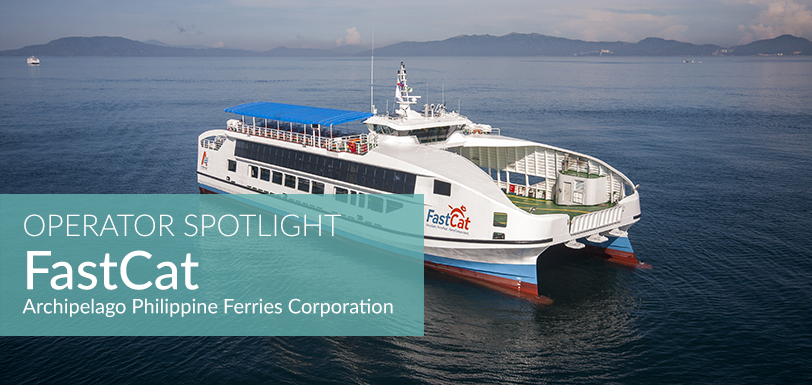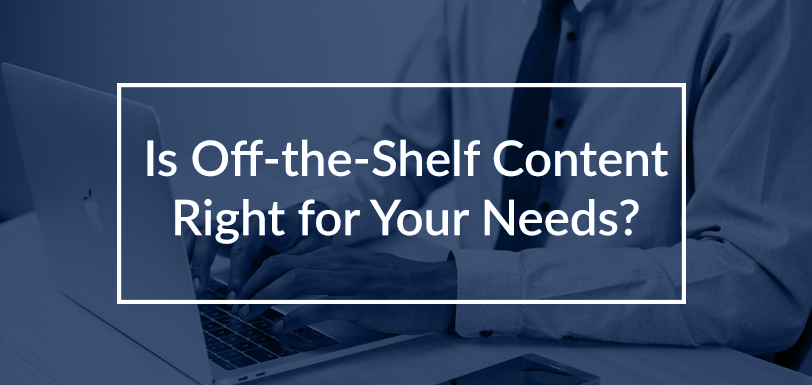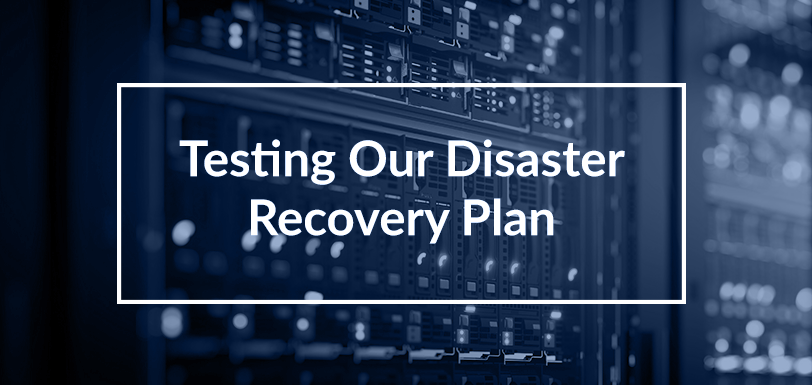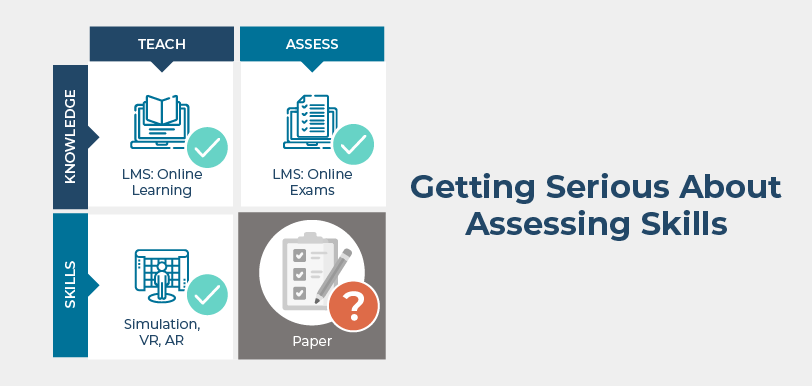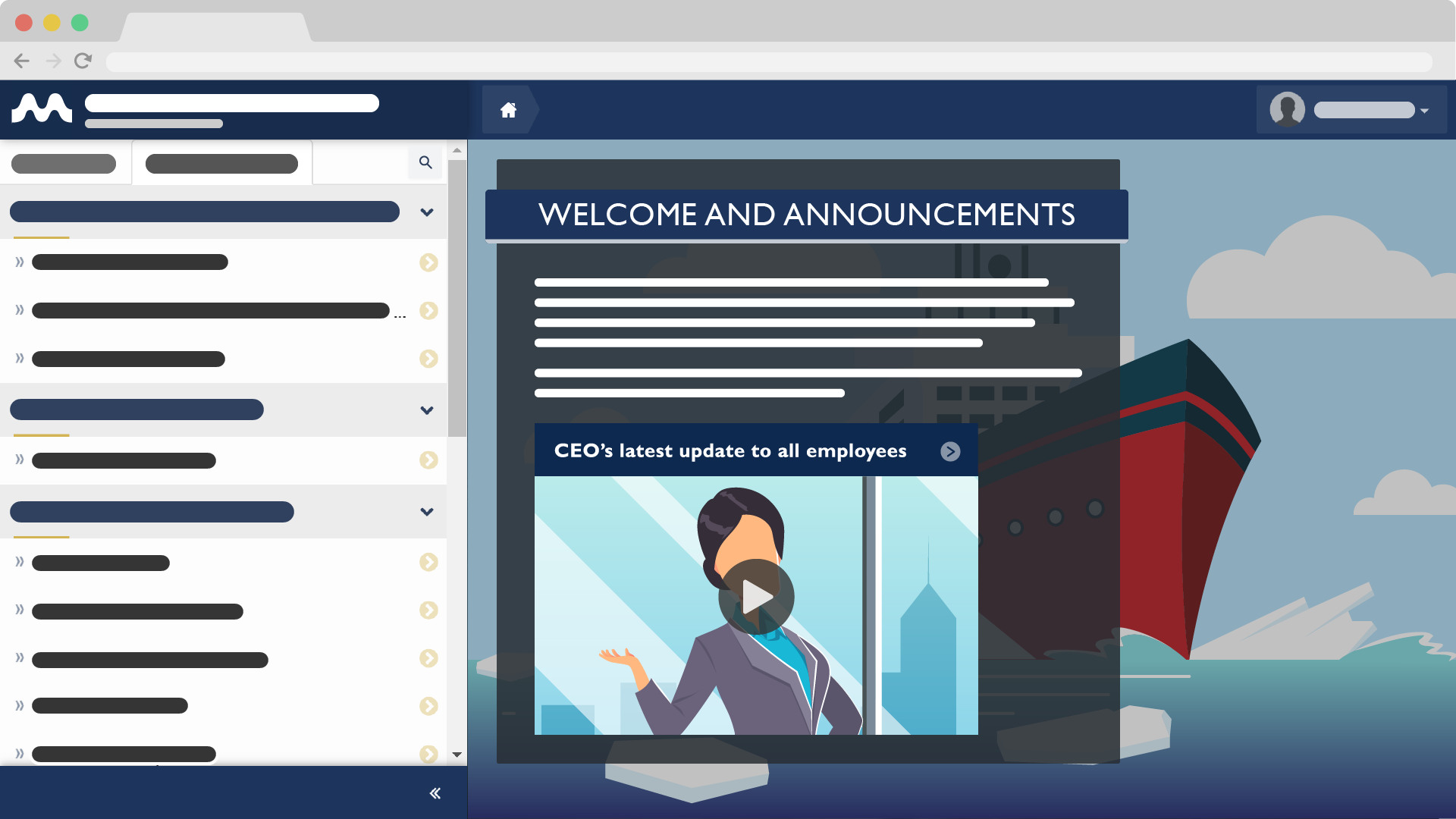Operator Spotlight: FastCat (Archipelago Philippine Ferries Corp)
Nov 14, 2019 Marine Learning Systems 0 eLearning, eLeraning, Interview, maritime safety, Maritime Training, Safety CulturePhoto above taken by Archipelago Philippine Ferries Corporation
Operator Spotlight is an interview series that explores different maritime operators and their experience using eLearning technology in their training programmes.
For today’s post, we had the wonderful pleasure of interviewing Mary Ann Pastrana, Executive Vice President of Archipelago Philippine Ferries Corporation (FastCat). FastCat is a trusted shipping company that was founded in 2002 to provide a vital maritime link between the Philippines’ many islands. Operating the country’s first fleet of catamaran Roll-on/Roll-off ferries, FastCat transports both passengers and cargo with an emphasis on passenger safety, welfare and comfort.
During our interview, we talked about FastCat’s challenges, their eLearning implementation experience, and their plans for the future.
Can you tell us a little about what your company does? How many employees/crew do you have? How many vessels or routes do you operate?
Our mission is to connect the Philippine islands and neighbouring countries (Indonesia and Malaysia), through a safe and fast ferry transport system. We have around 271 crew members, 328 Head Office and Ports personnel. And we also have around 1, 524 cadets right now.
FastCat is currently launching 4 new vessels by the end of the year, bringing our total fleet to 16 vessels. Our aim is to operate 30 vessels by the end of 2020, and our ‘big goal’ is to have 60 FastCats (catamaran RoRo ferries) by 2030. Each FastCat has 24 crew members per vessel.
We are operating on 17 routes and over the next two years, we will be adding more routes to connect the Philippines to Malaysia and Indonesia.
What challenges or needs did you face in the maritime industry that led you to look for a training or assessment solution?
One of the main reasons we were led to Marine Learning Systems (MarineLS) was our need to train our personnel and crew. We are pioneers in the Philippines with our modernized fleet and brand new FastCats. When we began to acquire the new vessels, we saw the need to do the same with training: to invest in our human capital and take the company to the next level.
In order to keep up with vessel maintenance and to uphold the safety of our crew and passengers, we needed a training platform that could be used by personnel operating in different areas. FastCat’s areas of operations are scattered across different islands in the Philippines. You can imagine how hard it is to get people together at a common time and place to train. We previously carried out all crew training face-to-face; this made it difficult to standardize learning and required a lot of time and company resources.
We needed to have a platform where employees could learn on demand, a central location for training and a system that we could customize to our operations. We then learned about eLearning and learning management systems, which led us on this journey with you [MarineLS].
What was the initial reaction to our product from the crew?
There was some resistance to eLearning adoption from the crew in the sense that our employees are either very young and inexperienced or they’re in their retirement years. Those in the latter have worked abroad with seafaring experience and they’ve returned to the Philippines; imagine introducing them to a new approach to training and technology such as an LMS. There was some resistance from this group to using the technology. In response, we have had to persist and continue to market the new programme and its benefits, to keep the conversation going.
Another initial challenge encountered was personal WiFi connection. Some crew members would comment ‘we don’t have Wifi connection in our area,” and so they are unable to access the online materials. This is especially true when they’re in more remote areas on the islands. We are still working on this challenge and although we are not moving as fast as we wish we can, we have been able to accomplish some things.
What was your experience with eLearning both before and after working with us?
We didn’t have any experience with eLearning before working with MarineLS.
We are continuously working on creating the content and courses, coming up with the rhythm of what should be on the LMS and when we should release and load content on the system. We are always marketing the courses and system to our people so that they can really engage with the training.
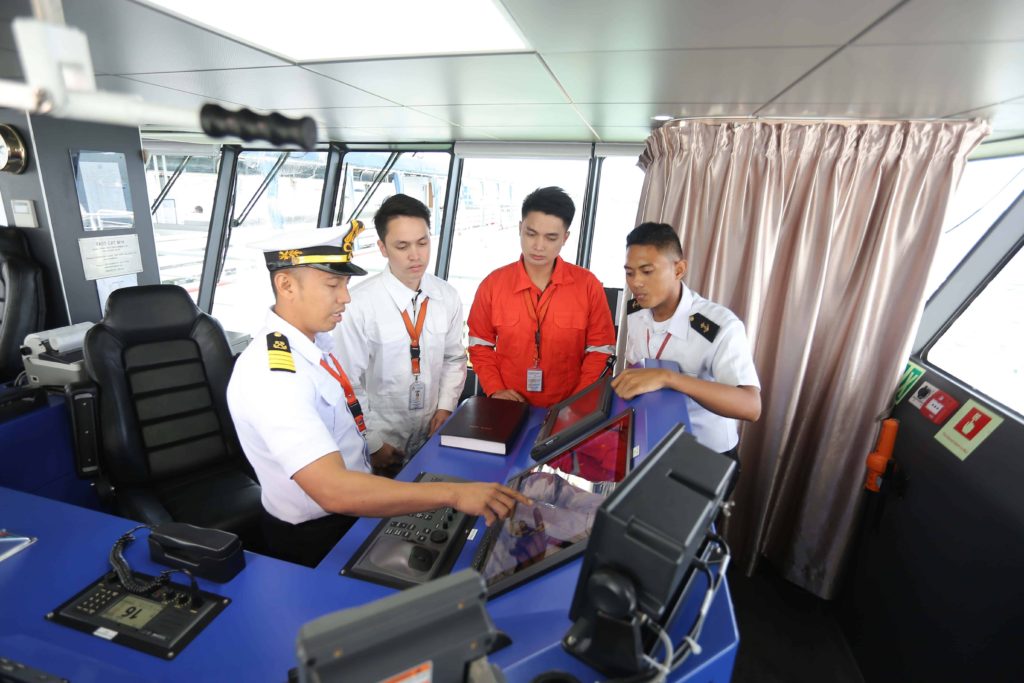
How did our product influence/help your overall day-to-day operations? What changes did you see?
We definitely saw changes. As before, the changes have not appeared as fast as we anticipated, but there have been improvements. For example, with our cadets who claim their Sea Service certificates, when we load STCW courses on to the LMS we will also randomly ask questions to validate the learnings they received from Ilearn FastCat. Most of them are able to correctly answer our questions.
In addition, after cadets have had their training with us, they go to maritime schools to validate their training record books. The STOs from these schools are also giving us feedback that compared to other companies and vessel operators in the Philippines, the cadets coming from FastCat are the ones who are usually passing their assessments. I have also been told by some STOs, when they come to visit FastCat in our office, that they also prefer to send their cadets to FastCats due to their observations.
How are our companies aligned (mission, strategy, culture, etc.)?
The mission of FastCat is to connect the Philippine islands through a very safe, fast and convenient way. That’s the tagline we follow. We also operate a training institute whose mission is to elevate training by giving a high-quality experience on board and by giving students exposure to high-quality deck training. To do so, we have eLearning and have recently launched our Virtual Reality training.
What are the biggest challenges on the horizon for your company and industry?
For FastCat, the future seems to be all good news as our company’s focus is on innovation: we have the first mover advantage in the sense that we are the first company in the Philippines to advance shipping services. Our unique selling proposition is that we own the ships we operate (with a goal to reach of 60 FastCats by 2030). That gives us the advantage of being able to offer quality education to seafarers not only on the shore through our training center, but, more importantly, onboard, when crew board a modern FastCat.
With the FastCats that we are planning to bring to the Philippines, we’re always innovating and continuously improving. We have learned what has to be improved from the first 10 FastCats that were deployed and using those lessons to improve the new generation of FastCats that are being delivered.
We are in the process of setting up our own ship repair facilities, wherein we will involve our crew members, cadets and team. You can imagine the impact it will bring to the whole organisation, to the industry and the country. Big exciting things are about to happen. We are focused on bringing the industry up to the next level.
Another good sign for the future: our government is also starting to improve. They have come up with a 10-year maritime industry roadmap that will take the industry to where it needs to go. They’re creating policies and laws that will improve the industry. This is good development for us as a company; we can align our direction with the roadmap that was created by the government. We are also very active with Interferry, an international shipping association that represents the global ferry industry. They are helping and supporting FastCat with studies, policy making and consultations.
All in all, it’s all positive and good news for our future.
Are there any future training or safety initiatives that you wish to accomplish? Do you have an idea on how to accomplish them?
Aside from the LMS, we have started to use Virtual Reality (VR) for ship familiarization training. We are also working on our engine overhauling VR training and emergency response VR training, specifically for firefighting. We started the project this year with a technology partner called SeaVersity, they develop the content and customize it for us, and we load the course onto the platform. We completed the assessments two months ago and are now in the process of rolling it out nation-wide.
Another initiative is our electronic training record book, which we started implementing in June 2019. A training record book is a mandatory requirement of STCW. In the Philippines, the use of a physical book is mandated. However, in our experience, cadets do not open their training record book until they need to submit it to the authorities, the Maritime Industry Authority (MARINA). The cadets then rush to fill it out, and we have seen that it becomes a source of corruption as some cadets pay to have someone else accomplish this task for them. We realized that something needed to be done to combat this, and an electronic training record book was our solution.
During the one year that cadets stay with us to train, we require them to open and use the electronic training book to load their tasks and answers. This helps students digest what they’re learning and makes the process very transparent. Records and progress data are stored in a central database, similar to an LMS, and authorities and schools have access to this information. Ultimately, the goal is to elevate the competency level of both our cadets and our shipboard training officers, since the officers walk with the cadets throughout the year as they build up their electronic training record book.
Follow this Blog!
Receive email notifications whenever a new maritime training article is posted. Enter your email address below:
Interested in Marine Learning Systems?
Contact us here to learn how you can upgrade your training delivery and management process to achieve superior safety and crew performance.


